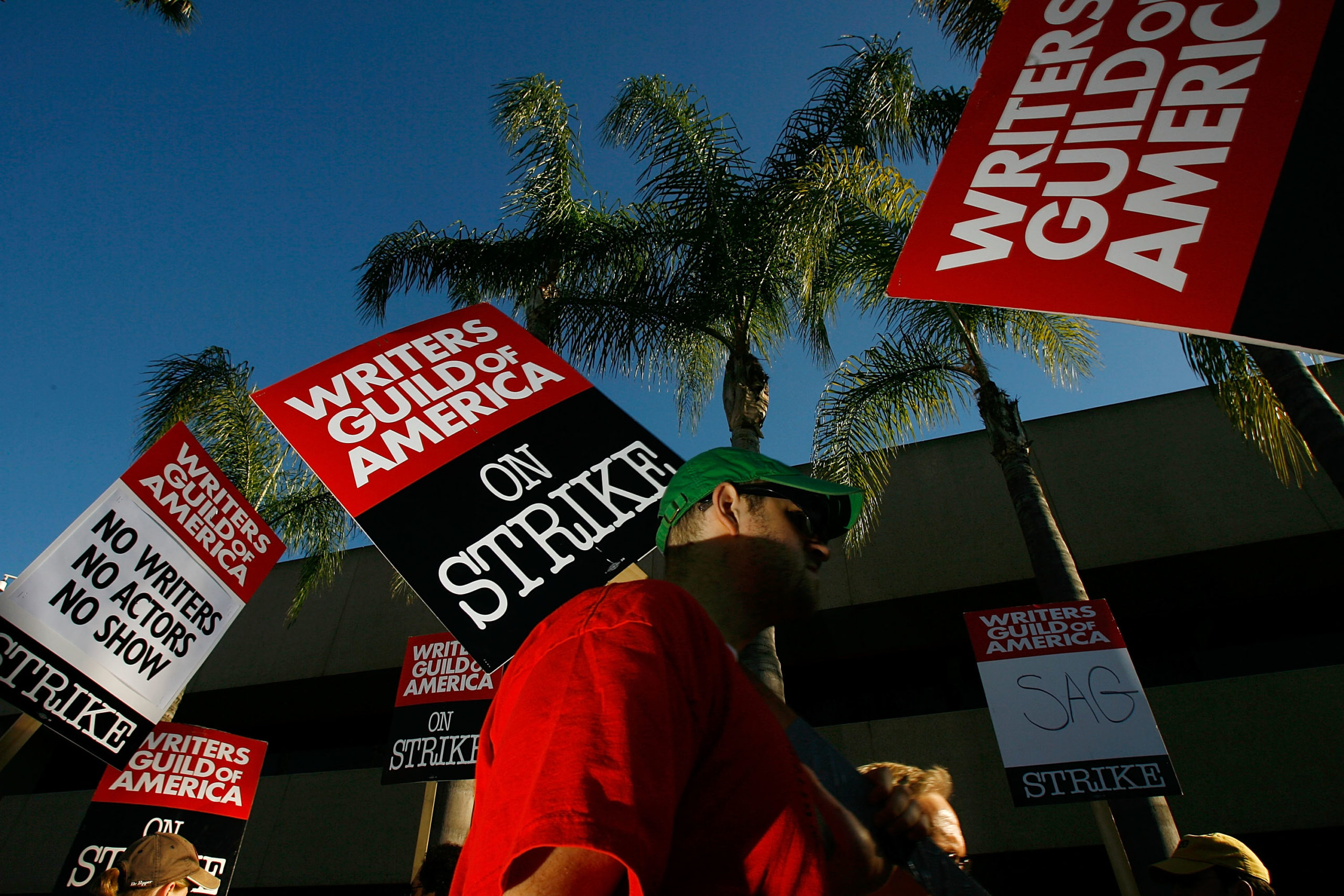L.A. County’s unemployment rate edged up to 5.1% in September from 5% in August, despite a gain of 20,000 jobs added to employer payrolls, according to state figures.
The rise in the unemployment rate nudged the figure out of the 4.9%-5.0% range that it had been hovering at for most of the year. The state Employment Development Department reported that 9,000 fewer Los Angeles County residents said they were working last month.
A major factor behind this may have been the twin strikes that roiled the local entertainment sector. The actors’ strike is ongoing, while the writers’ strike didn’t settle until the end of last month, after the household survey for unemployment status was taken.
September’s 5.1% unemployment rate was higher than the 4.5% rate recorded for the same month last year. And it was higher than both the 4.7% statewide rate and the 3.8% nationwide rate.
The Employment Development Department also provided a breakout of unemployment rates by city, though these raw rates are higher because they are not adjusted for seasonal factors.
Last month, the county’s two largest cities – Los Angeles and Long Beach – recorded unemployment rates of 6.1% and 5.4%, respectively. Among cities with more than 10,000 people in their labor force, Burbank had the highest rate at 8.5%, while Lomita had the lowest rate at 2.4%.
The news was more positive on the payroll jobs front, where, countywide, employers added a net 20,000 jobs to their payrolls last month for a total of 4,642,100, about 2,000 jobs shy of the record high reached in May.
The biggest gainer was the education sector, as all schools had reopened after summer recess. Substitute teachers and other part-time workers are typically out of work during the summer and return when the academic year begins. For both the public and private education sectors, a net 25,000 jobs were added to payrolls last month, accounting for the overall gain and then some.
The Employment Development Department also provides a seasonally-adjusted payroll employment figure, which accounts for this routine variability in the education payrolls; that figure showed a gain of about 9,000 jobs for September.
Other sectors recording net gains in payroll jobs last month were health care/social assistance (up, 6,800 jobs) and professional/business services (up 2,000 jobs).
The motion picture/sound recording industry, not surprisingly, recorded the biggest drop in payroll employment, with a net loss of about 5,000 jobs, which followed a nearly identical drop in August. With production still halted, many companies that rely on the industry have had to slash payrolls.
Other sectors recording net drops in payroll jobs last month include leisure/hospitality (down 3,200 jobs), manufacturing (down 1,800) and retail trade (down 1,400).
For the 12 months ending in September, the county posted a net gain of 96,000 jobs, for a 2.1% growth rate. Leading the way was health care/social assistance (a gain of 52,000 jobs), followed by accommodation/food services (up 25,500 jobs) and retail trade (up 8,400 jobs).
The motion picture/sound recording industry was by far the biggest loser over the past year, with a net drop of nearly 30,000 jobs. The only other sector with significant year-over-year job losses was manufacturing, down about 3,000.





